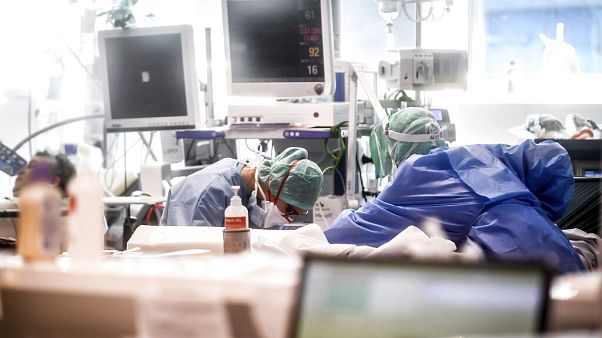
Medical personnel at work in the intensive care unit of the hospital of Brescia, Italy – Copyright Claudio Furlan/LaPresse

Medical personnel at work in the intensive care unit of the hospital of Brescia, Italy – Copyright Claudio Furlan/LaPresse